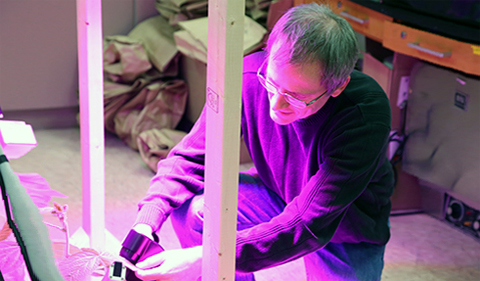Dr. David M. Rosenthal, Assistant Professor of Environmental & Plant Biology, co-authored “Rapid purging of genetic load in a metapopulation and consequences for range expansion in an invasive plant” in Biological Invasions.
Co-authors from Portland State University are Gina L. Marchini, Nena Cole Sherlock, Alisa P. Ramakrishnan, Mitchell B. Cruzan.
Abstract: Invasive species often display high fitness despite bottlenecks and inbreeding during establishment. We address this paradox through simulations and experiments that assess the potential for purging of genetic load during range expansion. Success of invaders often depends on the production of vigorous inbred offspring allowing for rapid population growth after colonization. Substantial genetic load of outbreeding species reduces the fitness of offspring as inbreeding ensues during the establishment of populations. In our simulations, sustained selfing or outcrossing within isolated populations did little to remove deleterious mutations. Conversely, inbreeding combined with periodic gene flow resulted in efficient purging and accelerated rates of range expansion. Purging efficiency was dependent on initial genetic diversity levels, in line with predictions that multiple introductions facilitate invasion and the evolution of more aggressive invaders. Simulation predictions were tested using the invasive species Brachypodium sylvaticum. Homozygous populations on B. sylvaticum’s range periphery displayed lower inbreeding depression compared to heterozygous populations near introduction sites. Empirical tests with B. sylvaticum demonstrate that purging of genetic load is a plausible scenario promoting range expansion during invasion.




















Comments